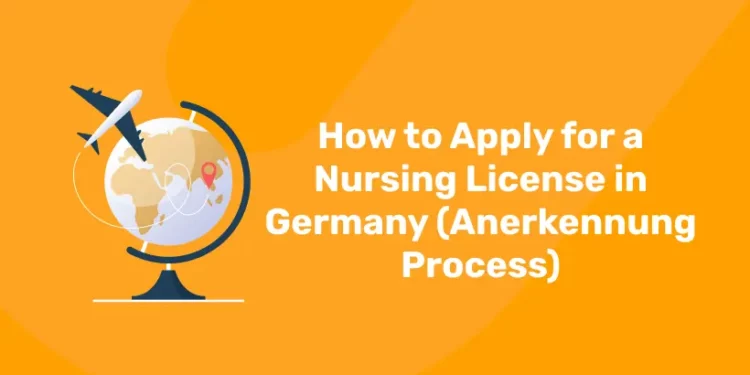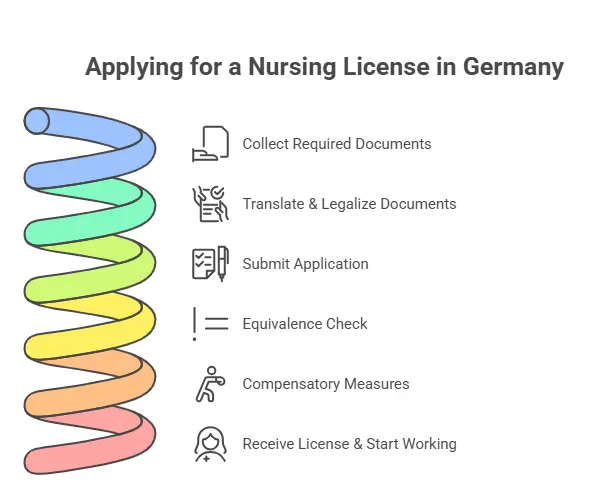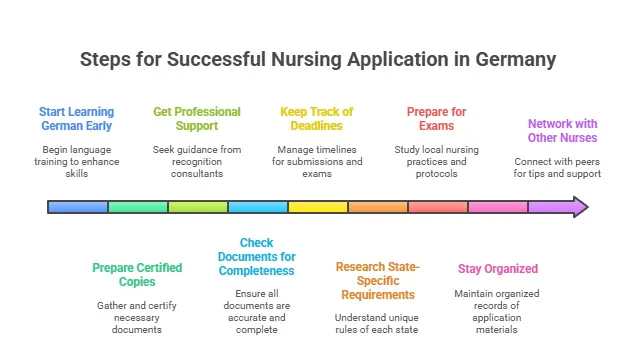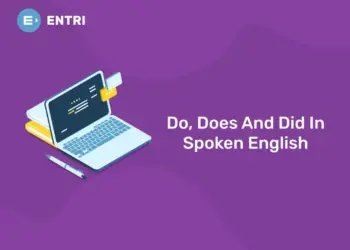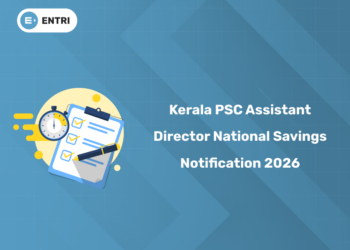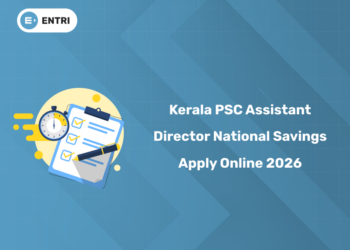Table of Contents
Germany is facing a serious shortage of qualified nurses, which has created great opportunities for healthcare workers from abroad. If you are a nurse trained outside of Germany, the Anerkennung process is the official recognition of your qualifications and your key to working legally as a registered nurse. Without it, you may only be able to work in limited support roles, although you have years of experience.
This guide will explain what you need to know about Anerkennung – who needs it, why it is important, what documents require, and how the application process works. Whether you are finding nursing jobs in Germany or already preparing your paperwork, this step-by-step guide will help you understand the process clearly and get ready for a successful career.
Master the German Language with Entri App! Click Here for Free Trial Class!
What is the Anerkennung Process?
The word “Anerkennung” in German means recognition. In the healthcare system, it refers to the official process in which German officials examine and confirm that your nursing qualification from another country is equal to German standards. When your qualifications are recognized, you get approval to work as a registered nurse in Germany. Without Anerkennung, even experienced nurses can only work as assistant or support roles, not as full professionals.
Foreign nurses require this process because each country has separate training systems, the course lengths and requirements of the course. Germany wants to ensure that nurses who come from abroad have the right skills, knowledge and practical experiences to match the standards for German health services. Anerkennung gives you legal rights to practice, ensure the patient’s safety, and also helps you reach better salaries and career opportunities.
Difference between “Anerkennung” and “Ausbildung”:
It is also important to understand the difference between Anerkennung and Ausbildung. Anerkennung is for nurses who are already qualified in their country and will have their degrees recognized in Germany. Otherwise, Ausbildung is the training done in Germany – it prefers to study nursing from the beginning within the German system. If your qualification is not fully recognized, you may be asked to complete additional training or exam, but it is different from doing a full Ausbildung.
|
German A2 Exercises – Download Free PDF |
||
Eligibility Requirements
1: How do you say "Good Morning" in German?
You have to meet some requirements for eligibility, then you can work as a registered nurse in Germany. These requirements ensure that nurses who come from abroad have the proper education, skills and backgrounds to provide secure and professional care at German hospitals and clinics.
1. Educational Qualifications
The most important requirement is that you should already be a trained nurse in your country. This means that you should complete a recognized nursing program, usually with both theory and practical training. German officials will compare your degree, study subjects and training hours with their standards. If they match carefully, your qualification can be recognized. If there are year gaps, you may be asked to take an exam before achieving fully recognized or making an adaptation course in Germany.
2. Language Proficiency
Since nurses in Germany work directly with patients, good communication skills are needed. According to the Common European Framework of Reference (CEFR), you are expected to have at least B2 level German fluency. Some states or hospitals may also prefer C1 levels, especially in special departments such as ICU or surgery where accurate communication is important. By reaching this German level, you will understand patients needs, write reports and work confidently with other health professionals. Many hospitals also provide help with language courses, but you must pass an official exam to prove your skills.
3. Health Fitness Certificate
To work as a nurse, you must prove that you are medically fit for the job. This is done from a licensed physician in Germany through a health fitness certificate (ärztliches Attest). The certificate confirms that you are able to handle the requirements for nursing physically and mentally, such as long shifts, patient care and emergency conditions. This step ensures both you are good in all situation and maintain patients’ safety.
4. Clean Background (Police Clearance)
Finally, you must provide evidence of clean criminal record from your country and sometimes from Germany if you are already living there. This document is regularly called a Police clearance certificate, indicating that you do not have a history of crimes that could affected patient safety or workplace consider. This is a crucial part of maintaining excessive standards within the healthcare system.
Free German A1 Mock Tests – Powered by AI!
Test your skills on our interactive platform. Get instant feedback from our AI to help you communicate better and track your progress. Start your free German mock test now.
Test Your German A1 for FreeStep-by-Step Guide to Applying for a Nursing License in Germany
The Anerkennung process may seem a long process, but if you maintain step-by-step processes, it is very simple. Collect your documents, translate them, submit your application and follow any additional requirements. Once you receive your Urkunde, it means you are ready to start the nursing career in Germany with full legal recognition.
Step1 – Collect Required Documents
The first step is gathering all the documents you’ll need for the application. These usually include:
- Your passport (as proof of identity)
- Nursing degree or diploma from your home country
- Transcripts showing the subjects you studied and the number of training hours
- Proof of professional experience (like employment letters or references)
- A detailed CV with your education and work history
- Certificates of language proficiency (German B2 or higher)
- Police clearance certificate from your home country
- Health fitness certificate (ärztliches Attest)
Having these documents ready from the start saves time and prevents delays later in the process.
Step2 – Translate & Legalize Documents
Since your documents are in a foreign language, they should be translated into German by a certified translator (called a beeidigter Übersetzer). Some documents may also require legalization or an email to confirm that they are genuine. This is very important because German authorities will only officially accept confirmed translations and valid documents. Without this step, your application cannot be processed.
Step3 – Submit Application to Relevant Authority
Each German state (Bundesland) has its own licensing authority, so you have to apply to the state where you plan to work. These officers are usually called “Anerkennungsstelle” or State Health Offices (Gesundheitsamt). You must fill out the application form, attach your documents and pay a small processing fee. Soon the authority will then review your request and start your recognition process.
Step4 – Equivalence Check
When your documents are submitted, the authority will conduct a similar check. This means that they will compare your foreign nursing qualification with German standard nursing training. They will look at the subjects, principles and total hours of your practice, and your work experience. If you are considered to be equal to your education, you can go directly to the final phase and get your recognition.
Step5 – Compensatory Measures (if needed)
If the authority finds year gaps in your training or experience, don’t worry—you can still qualify. They will give you two options:
- Adaptation Period (Anpassungslehrgang): A supervised training program in a German hospital where you gain missing skills.
- Knowledge Test (Kenntnisprüfung): An exam where you prove your knowledge matches the German standard.
You can choose from the two option that suits you best. Once you complete this step successfully, then you are eligible for recognition.
Step6 – Receive License & Start Working
After fulfilling all your requirements, you may receive your official certificates as recognition, known as “Urkunde”. This record is your nursing license in Germany and proves that you are recognized as a registered nurse. With this you could start trying to find jobs in hospitals, clinics or care homes all through Germany.
|
Goethe 2025 Exam Dates: Multiple Test Centers |
|
| Trivandrum Goethe Exam Dates | Kochi Goethe Exam Dates |
| Chennai Goethe Exam Dates | Coimbatore Goethe Exam Dates |
Cost & Processing Time
The Anerkennung process is not independent, and the exact cost depends on the state where you apply. Usually, the application fee is between €200 and €600. This fee covers a review of your documents, equivalence checks and official recognition certificate. If you need a certified translation or email number for your documents, you should also provide extra budget for these services. Ocassionally, additional costs may come if you need to test knowledge or participate in an adaptation program.
Processing time can vary greatly. On common, it takes 3 to 12 months to check your application to be reviewed. Time depends on the state authority, the completeness of your documents, and whether you want more steps inclusive of compensation schooling or research. Some states are faster, while others may take more time due to more variety of packages.
Common Challenges & How to Overcome Them
Moving to Germany as a nurse and undergoing the Anerkennung process can be exciting, but it also comes with challenges. The good news is that most of these challenges can be managed with the right preparation. Here are some of the most common and how to deal with them:
1. Language Barrier
One of the biggest difficulty for foreign nurses is must requires German language. Working in the healthcare system means talking to patients, writing reports and clearly understanding medical conditions. Many nurses are difficult to reach B2 level medical German.
How to overcome it: Start learning German as soon as possible, ideally while living in your country. Sign up for medically focused language courses that teach you general healthcare terminology and patient communication. Practicing with native speakers or online language exchange platforms can also promote your confidence.
2. Missing Documents
Another common challenge is incomplete or lacking paperwork. Nursing degrees, transcripts, and proof of work experience must required, but sometimes it is difficult to obtain these documents, especially if your hospital is slow to respond.
How to overcome it: Contact the university, nursing school or hospital early to request official copies. Make sure they include all necessary details that studied subjects, hours of practice, and employment dates. Keep multiple copies of certificates, so you’re prepared in case authorities ask for them again.
3. Long Waiting Times
The Anerkennung process is not done fastly. Depending on the state, it may take 3 to 12 months. For many nurses, this wait feels disappointing, especially if they are eager to start working immediately.
How to overcome it: If possible, apply even when you are abroad. T This way, the waiting time is already running before you move to Germany. You can also use this time to improve your German, prepare for knowledge testing or discover job opportunities. Staying patient and organized stay will make the process less stressful.
Free German A1 Mock Tests – Powered by AI!
Test your skills on our interactive platform. Get instant feedback from our AI to help you communicate better and track your progress. Start your free German mock test now.
Test Your German A1 for FreeNursing License Recognition Authorities (By State)
In Germany, the nursing license is recognized by the state officials. Each federal state (Bundesland) has its own office, responsible for handling every application. For example, recognition is governed separately in places such as North Rhine-Westphalia, Bavaria, Berlin, Hamburg, or Saxony. This means that if you want to work as a nurse in Germany, you must apply to the authority in the state where you plan to live and work.
The good news is that Germany has an official information portal called “Anerkennung in Deutschland”. This website explains the process phases in different steps, provides guidance in many languages and helps you find the right office on the basis of your profession and state.
Official Portal: Anerkennung in Deutschland
Here you can easily check all the requirements for the nursing qualification and get clear instructions on how to apply for a license.
Start learning German today to fast-track your career in Germany!
Tips for a Successful Application
✅ Start learning German early: Gaining good language skills are very important for recognition and work as a nurse in Germany.
✅ Prepare certified copies: Authorities usually require some documents, such as diploma certificates, transcripts or work experience certificates. Keep multiple copies of each certificates ready so you don’t give time for requesting new ones if needed.
✅ Get professional support if needed: If processing steps feels complicated, you can reach the official recognition advisers through the Anerkennung in Deutschland portal. They can guide you and make sure your application is completed.
✅ Check your documents for completeness before submission: Double-check that all your certificates, transcripts and references are correctly translated and certified. Missing or incorrect documents is one of the most common causes of delaying the process.
✅ Keep track of deadlines and timelines: Processing time depends on the state you are applying for, and may vary from few months to a year. Create your own checklist with all deadline for documents submission, language exams and interviews etc.
✅ Research the state-specific requirements: Each German state may have slightly different rules for recognition. Be sure to visit the official website of the state to understand what is really expected.
✅ Prepare for the knowledge and practical exams: Some states require an adaptation period or practical examination. Keep on local nursing practice and protocols, and consider small courses or training to make-up if there is any career gap.
✅ Stay organized: Use folders (physical or digital) for each part of your application. Include copies of your application, correspondence, translations and certificate.
✅ Network with other nurses: Joining forums or social media groups of internationally trained nurses in Germany, you can gain practical suggestions, insight into the process and encourage those who have navigated recognition.
Conclusion
The nursing license in Germany may take time to recognize, but this is completely possible with the right preparation. Start learning the German language quickly, keep all of your documents ready, and follow the Anerkennung steps carefully. Don’t be hesitate to ask for any help or guidance with the authorities if necessary. With patience, organization and determination, you can achieve your goal and start a rewarding career as a nurse in Germany.
Free German A1 Mock Tests – Powered by AI!
Test your skills on our interactive platform. Get instant feedback from our AI to help you communicate better and track your progress. Start your free German mock test now.
Test Your German A1 for FreeFrequently Asked Questions
Can I work as a nurse in Germany without Anerkennung?
You can work in some nursing-related jobs, like assistant roles, but you cannot work as a fully licensed nurse until your qualifications are recognized.
Do I need German language skills before applying?
Yes, good German skills are very important. Most states require at least B2 level, and medical German knowledge is often needed for exams and daily work.
How long does the adaptation period take?
The adaptation period (practical training or exam preparation) usually lasts a few months, but it can vary depending on your qualifications and the state.
Is it possible to apply from outside Germany?
Yes, you can start the Anerkennung process from your home country. Make sure all your documents are ready and certified before submitting your application.
What documents are required for the application?
Typically, you need your diploma, transcripts, work experience certificates, ID, passport photos, and certified translations of all documents.
Can I improve my chances of approval?
Yes, learning German early, keeping documents organized, and seeking guidance from official recognition consultants can make the process smoother and faster.
How long does the entire Anerkennung process take?
Processing time varies by state and individual cases. On average, it takes 3–12 months, depending on document completeness, exams, and local authority workload.


